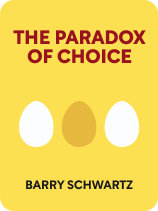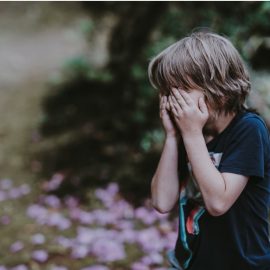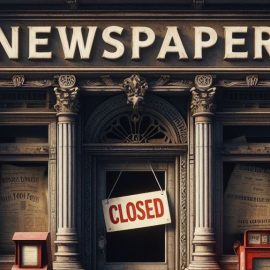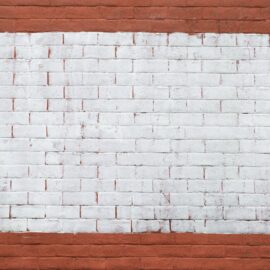

This article is an excerpt from the Shortform book guide to "The Paradox of Choice" by Barry Schwartz. Shortform has the world's best summaries and analyses of books you should be reading.
Like this article? Sign up for a free trial here .
What is social comparison? Why is comparing yourself to others so harmful? Is social comparison more common today than ever before?
Social comparison is the act of comparing yourself to others—whether you know them or not. This act can come in two forms: upward comparison and downward comparison. The motivating factor for any social comparison, however, is the motivation to achieve status.
Keep reading to learn all about social comparison and how it affects decision-making and mental health.
Social Comparison—Defined
What is social comparison? In market democracies, social comparison—comparing ourselves to others—affects decision-making the most, according to Barry Schwartz (the author of The Paradox of Choice). As with counterfactuals, we can compare ourselves to others positively or negatively. For instance, if you’re the first in your college graduating class to get a full-time job, you may feel accomplished in comparison to your peers. However, if you’re passed over for a promotion later, you may feel inferior to colleagues who were promoted.
Schwartz explained earlier that upward counterfactuals often make us feel worse, while downward counterfactuals make us feel better. This is often true, as well, with upward and downward social comparisons—but not always. For instance, you might feel good if people whom you know and like do well; on the other hand, you might feel bad if people you know are much worse off than you are.
Another distinction between the experience of counterfactuals and social comparisons is that we have less control over the latter. Social comparisons are an unavoidable aspect of society and daily life, and as such we have little to no control over them. While we can control the counterfactuals we imagine to a certain extent, we can’t always help comparing ourselves to the people we see and interact with every day.
| Upward and Downward Social Comparison Whether we make upward or downward social comparisons depends on the circumstances. Upward comparisons are more likely when the comparer makes them privately, does not think of themselves as inferior, and is personally invested in the positive characteristics of the person they’re comparing themselves to. On the other hand, downward comparisons are more likely when the comparer feels that their identity or well-being is vulnerable, as downward comparisons boost self-esteem. While Schwartz has argued that, with exceptions, upward comparisons make people feel better and downward comparisons make people feel worse, some researchers think that the emotional effect of social comparisons depends almost entirely on the individual. For example, if your best friend gets a promotion at her job, you might feel happy for her, even if you’re not satisfied with your job. On the other hand, if another friend of yours gets fired from his job, you might feel bad for him, instead of feeling happy that you’re better off. |
Status and Positional Competition
Schwartz notes that a motivating factor behind social comparison is the desire for status. However, achieving status is difficult in a society of expanded choice: Everyone has more ways to accrue status, so it’s harder to get ahead.
For example, people have traditionally sought status within their own social circles. Yet social media platforms to which everyone has access have widened the arena.
One way people try to gain or express status is through positional competition: competing among others for scarce resources or positional goods, such as a luxury car or a room at a 5-star hotel. By accruing positional goods, you gain social status. However, as more people try to attain them, it becomes more competitive.
Schwartz argues that society encourages us to compete for scarce resources. Status and positional competition motivate us to compare ourselves and our choices to others’, yet ultimately, scarcity makes this pursuit profoundly unsatisfying.
| Social Status and Games Accruing status is a common goal throughout life and society. For instance, in A Theory of Fun for Game Design, Raph Koster details how social status affects game playing. Koster writes that the drive to achieve social status is common across games of all kinds. The clearest example of how you can achieve social status through games is that many have winners and losers—the drive to win a game indicates a desire for status. Some games, such as Monopoly, also involve jockeying for territory or property. Since all people attempt to attain social status to some extent in their daily lives, it makes sense that it would also play a role in escapist activities. |
Maximizing
While social comparison and the drive to accrue status cause challenges for everyone, Schwartz notes that, once again, maximizers suffer the most acutely because of their drive to have the best.
Schwartz cites research showing that those most likely to be negatively impacted by social comparison are generally unhappy people and maximizers. When given a task, these people were only happy when they found they were doing better than others, and they were unhappy when they were doing worse than others, regardless of their actual skill.
Schwartz notes that it is unclear whether maximizing causes people to be unhappy, or unhappiness breeds maximizing tendencies, but it’s likely that both are true. It may seem contradictory that maximizers are impacted by social comparison: In their quest for “the best,” it may seem improbable that they’re concerned with what other people have. However, you can only really determine what “the best” is by comparing the outcomes of your choices to those of others. A maximizer might buy something because they believe it’s better than a similar product their friends own.
| Social Media, Social Comparison, and Maximizing Social media encourages people to make constant social comparisons, which can be harmful psychologically. Because people tend to post idealized images of themselves on social media, users make frequent upward comparisons. When subjected to a constant stream of images that cause upward social comparison, people may experience depression, lower self-esteem, and negative body image. These results are particularly strong for those who are pessimistic. If a maximizer sees a stream of images of people doing better, it likely will make them more unhappy than a satisficer would be, since maximizers are more affected by others’ success. |
Expanded Choice
Schwartz contends that expanded choice makes social comparison both more common and more emotionally difficult. When presented with more options than we know what to do with, it’s natural to look to the results of others’ decisions for guidance.
And since social comparison tends to make you feel worse, judging your choices by the choices of others is likely to do the same.
| Dealing With Social Comparison, Expanded Choice, and Social Media Thanks to social media, we have endless opportunities to feel inferior to other people. Here are a few tips for avoiding the negative effects of social comparison: Avoid comparing yourself to the most exceptional people you can think of.Target your social comparisons to people you think you could learn something from. Reflect on the positive attributes of your life. Some social media-specific strategies you could try are to unfollow people who cause you to make stressful social comparisons, or limit the amount of time you spend on social media each day. |

———End of Preview———
Like what you just read? Read the rest of the world's best book summary and analysis of Barry Schwartz's "The Paradox of Choice" at Shortform .
Here's what you'll find in our full The Paradox of Choice summary :
- Why the more choices we have, the more stressed and indecisive we feel
- How to better navigate our choices, from groceries to health insurance
- Whether it's better to seek the best or accept "good enough"






